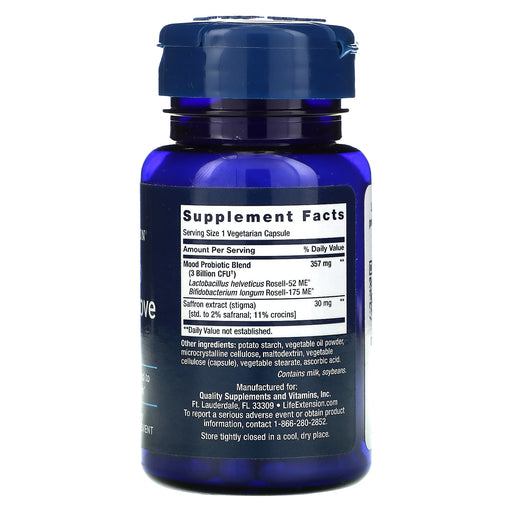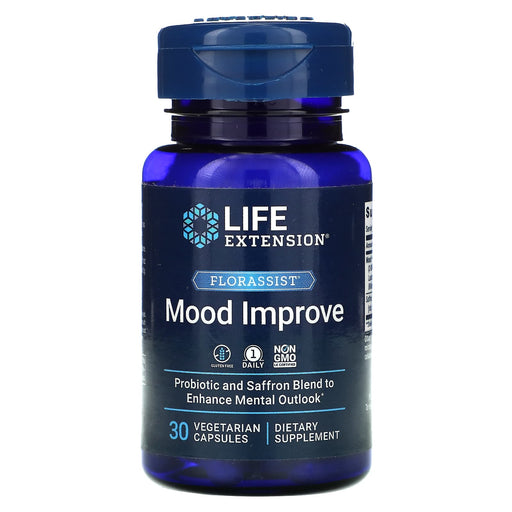
Unleash the Mood-Boosting and Antioxidant Power of Saffron Supplements
Saffron, derived from the stigmas of the Crocus sativus flower, is a prized spice that has been used for centuries in traditional medicine to support mental well-being, digestive health, and overall vitality. With its potent antioxidant and mood-boosting properties, saffron supplements offer a natural way to promote emotional balance, cognitive function, and overall health.
What is Saffron?
Saffron is a highly valued spice that is obtained from the stigmas of the Crocus sativus flower, which is native to the Middle East and parts of Europe. Each flower produces only three stigmas, which must be carefully hand-harvested and dried, making saffron one of the most expensive spices in the world.
The health benefits of saffron can be attributed to its unique blend of bioactive compounds, including:
- Crocins: These water-soluble carotenoids are responsible for saffron's vibrant red color and have potent antioxidant and anti-inflammatory properties.
- Safranal: This aromatic compound gives saffron its distinctive flavor and aroma and has been shown to have mood-enhancing and neuroprotective effects.
- Picrocrocin: This bitter-tasting compound contributes to saffron's flavor profile and has been studied for its potential to support digestive health.
Saffron supplements are available in various forms, such as powders, capsules, and extracts, providing a convenient way to incorporate the benefits of this precious spice into your daily routine.
Benefits of Saffron Supplementation
Incorporating saffron supplements into your health regimen may offer several potential benefits, including:
- Mood Support: Saffron has been traditionally used to promote a positive mood and emotional well-being. Several studies have shown that saffron supplementation may help alleviate symptoms of mild to moderate depression and support overall mental health.
- Cognitive Function: The bioactive compounds in saffron, particularly crocins and safranal, have been shown to support cognitive function, memory, and learning. Saffron may also have neuroprotective properties, helping to reduce oxidative stress and inflammation in the brain.
- Antioxidant Protection: The crocins in saffron are potent antioxidants that help neutralize harmful free radicals and reduce oxidative stress throughout the body, supporting overall health and longevity.
- Eye Health: Saffron's antioxidant properties may help protect the eyes from oxidative damage and support healthy vision. Some studies suggest that saffron supplementation may be beneficial for age-related macular degeneration (AMD) and other eye disorders.
- Digestive Health: Saffron has been traditionally used to support digestive health, and modern research suggests that it may help alleviate symptoms of digestive disorders, such as indigestion and bloating.
Choosing the Best Saffron Supplement
When selecting a saffron supplement, consider the following factors to ensure you choose a high-quality product that meets your needs:
- Standardized Extract: Look for supplements that contain a standardized extract of saffron, typically standardized to a specific percentage of crocins or safranal, to ensure consistent potency and quality.
- Purity and Quality: Choose supplements that are manufactured by reputable companies, free from contaminants and artificial additives, and third-party tested for purity and potency.
- Dosage: Saffron supplements are typically available in doses ranging from 15-200 mg per day. Look for supplements that provide an effective dose based on clinical studies and your individual needs.
- Brand Reputation: Select supplements from trusted brands with a history of producing high-quality, science-backed saffron products and a commitment to transparency and safety.
- Synergistic Ingredients: Some saffron supplements may include additional mood-supportive or neuroprotective ingredients, such as B vitamins (particularly vitamin B6, vitamin B9, and vitamin B12), magnesium, or omega-3 fatty acids. Consider these synergistic ingredients when choosing a supplement for a more comprehensive approach to emotional well-being.
Maximizing the Benefits of Saffron Supplements
To get the most out of your saffron supplement, consider the following tips:
- Follow Dosage Instructions: Always adhere to the recommended dosage on the product label, and consult with your healthcare provider before starting any new supplement regimen, especially if you have pre-existing health conditions or are taking medications.
- Pair with a Balanced Diet: While saffron supplements can provide valuable mood and cognitive support, they should be used in conjunction with a balanced, nutrient-dense diet rich in fruits, vegetables, whole grains, and healthy fats.
- Practice Stress Management: Incorporate stress-reducing activities, such as meditation, deep breathing, or yoga, into your daily routine to further support emotional well-being and maximize the benefits of saffron supplementation.
- Be Patient: The effects of saffron supplementation on mood and cognitive function may take time to become noticeable, as the bioactive compounds work to support emotional balance and brain health gradually. Consistent, long-term use is often necessary to experience the full range of benefits.
- Store Properly: Keep your saffron supplement in a cool, dry place, away from direct sunlight and moisture, to maintain its potency and freshness.
Elevate Your Mood and Cognitive Function with Saffron Supplements
If you're looking to support emotional well-being, cognitive function, and overall health, saffron supplements may be a valuable addition to your wellness routine. By harnessing the potent antioxidant and mood-boosting properties of this precious spice, you can help promote mental clarity, emotional balance, and optimal brain health.
Witness the potential of saffron supplementation for yourself by exploring our curated selection of high-quality saffron supplements. With a commitment to purity, efficacy, and your individual needs, Health Orchard is here to support you on your journey toward optimal mental well-being and vitality.
Frequently Asked Questions about Saffron
1. What are saffron supplements good for?
Saffron supplements are believed to provide several health benefits, including:
- Improving mood and reducing symptoms of depression and anxiety
- Supporting eye health and preventing age-related macular degeneration
- Enhancing cognitive function and memory
- Reducing appetite and promoting weight loss
- Alleviating symptoms of premenstrual syndrome (PMS)
- Providing antioxidant and anti-inflammatory effects
- Potentially supporting heart health by lowering blood pressure and cholesterol levels
While research on saffron's health benefits is ongoing, many studies suggest that it may be a useful natural remedy for various health concerns.
2. Who should not take saffron supplements?
While saffron supplements are generally safe for most people, there are some individuals who should avoid or exercise caution when taking them:
- Pregnant women, as saffron may stimulate uterine contractions and increase the risk of miscarriage
- Individuals taking blood thinners or anticoagulant medications, as saffron may increase the risk of bleeding
- People with low blood pressure, as saffron may further lower blood pressure
- Those with allergies to plants in the Crocus family, as they may be more likely to experience an allergic reaction to saffron
- Individuals with bipolar disorder, as saffron may trigger manic episodes in some cases
It is always best to consult with a healthcare professional before starting any new supplement regimen.
3. Can you take saffron supplement every day?
Yes, you can take saffron supplements every day, as long as you follow the recommended dosage instructions on the product label or as directed by a healthcare professional. Most studies on saffron's health benefits have used daily doses ranging from 20-30 mg of saffron extract. Taking saffron supplements at these dosages is generally considered safe and well-tolerated. However, it is essential not to exceed the recommended dose, as high doses of saffron may cause side effects such as dizziness, nausea, and vomiting.
4. What is the best saffron supplement?
The best saffron supplement will depend on individual needs and preferences, but some factors to consider when choosing a high-quality product include:
- Standardized extract: Look for supplements that contain a standardized extract of saffron, typically providing 0.3-1% safranal, to ensure consistent potency and quality
- Purity: Choose supplements that are free from fillers, binders, and artificial ingredients
- Third-party testing: Opt for products that have been independently tested for purity and potency by a reputable third-party organization
- Brand reputation: Select supplements from well-established brands with a history of producing high-quality products
Some reputable saffron supplement brands include Life Extension, Swanson, and Solaray. However, it is always best to research and compares different options to find the best product for your needs.
5. When should I take saffron, morning or night?
The optimal time to take saffron supplements may depend on the specific health benefit you are seeking. However, most studies on saffron's effects have administered the supplement in divided doses, typically twice daily. For general use, taking saffron in the morning and evening with meals is a common approach. If using saffron for sleep-related issues, taking it in the evening before bedtime may be more beneficial. Ultimately, the best time to take saffron will depend on your individual needs and preferences, as well as the recommendations of your healthcare provider.
6. Is saffron supplement safe?
Yes, saffron supplements are generally considered safe when taken at the recommended dosages. Most studies have used daily doses of 20-30 mg of saffron extract without reporting significant adverse effects. However, as with any supplement, there are some potential side effects and precautions to be aware of:
- High doses of saffron (more than 5 grams) may cause toxic effects, such as vomiting, dizziness, and bleeding
- Saffron may interact with certain medications, such as blood thinners and antidepressants, so it is important to consult with a healthcare provider before use
- Some people may experience allergic reactions to saffron, particularly those with allergies to plants in the Crocus family
- Pregnant women should avoid saffron supplements, as they may stimulate uterine contractions and increase the risk of miscarriage
Overall, when used appropriately and under the guidance of a healthcare professional, saffron supplements are considered safe for most people.
7. When should I stop taking saffron?
You should stop taking saffron supplements if you experience any adverse effects or allergic reactions, such as:
- Dizziness or lightheadedness
- Nausea or vomiting
- Dry mouth or excessive thirst
- Headache or fatigue
- Skin rash or itching
Always follow the guidance of your healthcare professional when deciding to start or stop any supplement regimen.










